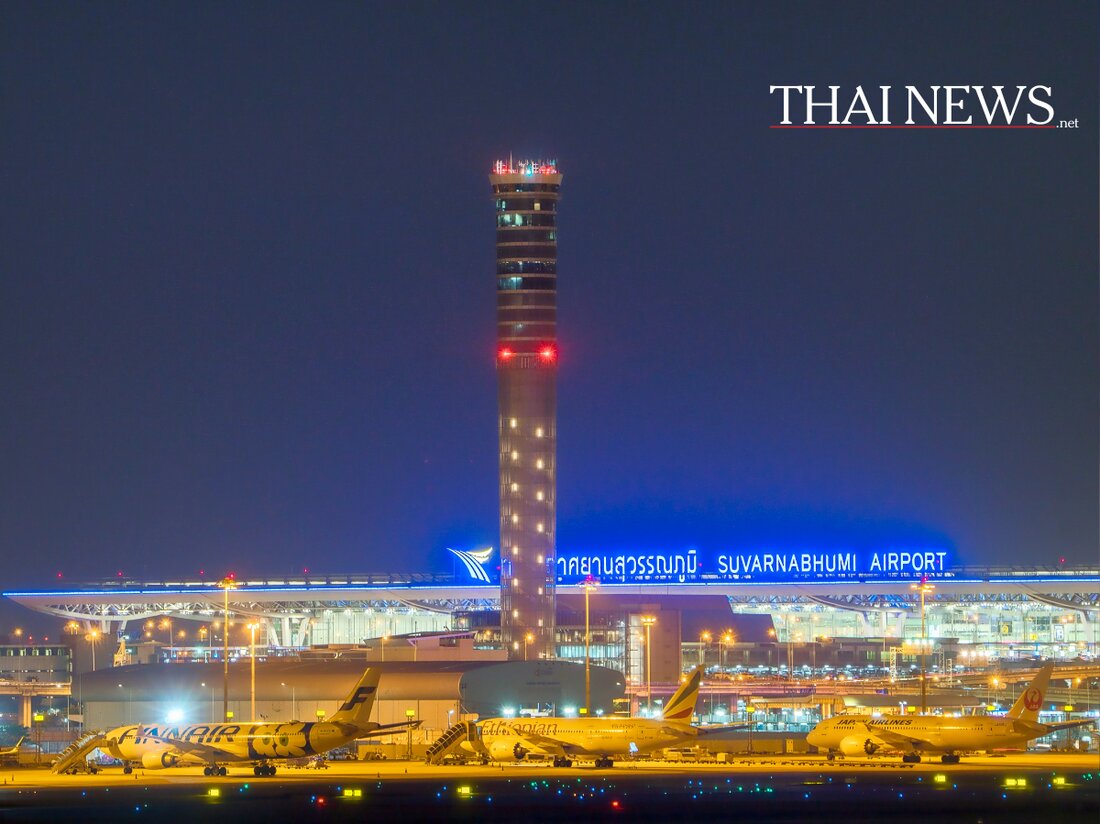Future of the airport: Thailand invests in aviation and logistics!
On October 28, 2025, a seminar in Thailand will provide information about airport development, sustainable growth and the upswing in the tourism sector.

Future of the airport: Thailand invests in aviation and logistics!
On October 28, 2025, experts and interested parties gathered for the seminar “At the Skyconomy: Thailand’s Runways to Aviation Hub,” hosted by Bualuang Securities (BLS). Mr. Sithidej Mayalarp, CEO of SKY ICT Public Company (SET: SKY), presented the promising prospects of his company, which is a service provider for 13 airports in Thailand. Despite a decline in tourist numbers, SKY has seen only a limited impact. On the contrary: total passenger volume has doubled in the last two years and is expected to continue to grow.
People are looking to the future with optimism: the newly formed government is seen as a stabilizing factor and a source of confidence for investors and the tourism sector. Suvarnabhumi Airport is also highlighted as a key hub for passenger and cargo growth. This strategy also includes the third cargo concession to AOT Ground Aviation Services Co., Ltd. (AOTGA), which is seen as a decisive step towards one's own competitiveness in the region. In order to come closer to the international standards of Singapore and Hong Kong, significant investments are planned in the airport's infrastructure.
Excellence through technological innovations
SKY ICT develops, among other things, automated check-in systems and uses biometric technologies to increase efficiency at airports. Mr. Mayalarp expects his company's peak performance in the fourth quarter of 2025, primarily due to the return of Chinese tourists who continue to choose Thailand as their first destination. This growth will also be supported by improved services and expanded flight schedules.
SKY currently has an order backlog of approximately THB 23.4 billion and plans to acquire additional project contracts. The government's political guidelines and the acceleration of household spending of THB 3.7 trillion are key growth drivers.
The development of the Eastern Economic Corridor
Parallel to the developments in the aviation industry, there is exciting news in the Eastern Economic Corridor (EEC). Chula Sukmanop, Secretary-General of the Eastern Economic Corridor Office of Thailand (EECO), has announced that Italian-Thai Development Public Company Limited (ITD) has been selected as the contractor for the U-Tapao Airport and Eastern Aviation City project. This comprehensive project, being developed on an area of 6,500 rai (approximately 2,600 acres), includes an airport terminal as well as an air cargo and logistics area.
The first phases of the project are expected to accommodate around 12 million passengers by 2028, with a later capacity increase to up to 60 million passengers annually. In addition, the airport city will offer world-class facilities and services that are expected to stimulate economic growth in the EEC. These include, among other things, a MICE center, hotels and also a medical tourism center.
Climate-friendly approaches for the future
As the aviation industry continues to grow, collaboration between Thailand and Australia in integrated urban water management offers new perspectives. Thailand is vulnerable to the impacts of climate change, which is why the Eastern Economic Corridor Development Project aims to create a resilient and climate adaptable region.
Monash University brings its expertise in water systems and climate adaptation to develop innovative design strategies. These include the design of stormwater treatment facilities and multifunctional public spaces intended to improve biodiversity and water quality.
With a clear focus on sustainable growth and technological progress, Thailand sees itself well positioned to act as a central logistics hub in Southeast Asia. Importing companies such as DHL, FedEx and UPS are already expressing interest in increasing their presence in the region.
The current situation shows that Thailand is well on its way to setting the course not only within the aviation industry, but also in the areas of urban development and climate adaptation. Although the challenges are great, the opportunities arising from these developments should not be underestimated.
For more information on the latest aviation and economic developments in Thailand, visit the articles by Kaohoon International, Nation of Thailand and WSCAAustralia.

 Suche
Suche
 Mein Konto
Mein Konto
